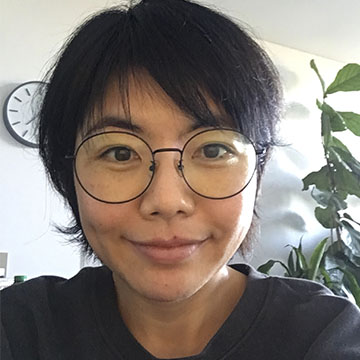Dr Hye-Ryen Jang
Research Fellow
Motivation and Behavior
 Areas of expertise: educational psychology; motivation; autonomy support; Intrinsic and extrinsic instructional goal
Areas of expertise: educational psychology; motivation; autonomy support; Intrinsic and extrinsic instructional goal
HDR Supervisor accreditation status: Provisional
ORCID ID: 0000-0003-4676-7322
Phone: +61 2 9701 4173
Email: hye-ryen.jang@acu.edu.au
Location: ACU North Sydney Campus
“Why do students lose their dreams and inner aspirations as their grades go up?” With this question, Hye-Ryen understood two important propositions based on Self-Determination Theory (SDT; Ryan & Deci, 2017) framework. The first proposition is goals are not created equally. The second proposition is teachers are a critical in-class catalyst to boost the educational environment in which students can promote their motivation, learning, and well-being outcomes. This led her to focus on teachers and their goals embedded within lesson plans for class instruction.
Hye-Ryen conceptualized teachers’ instructional goals into intrinsic (e.g., personal growth and relationship growth) and extrinsic (e.g., high-test scores) (Jang, 2019). A follow-up experiment study established the directional (i.e., causal) nature that teacher-provided instructional goals have on students’ motivation and learning. She showed that manipulated intrinsic instructional goals (via a teacher-focused intervention) caused a corresponding change in teachers’ motivating style. That is, when teachers set, and pursued intrinsic instructional goals, then they tend to adopt an autonomy-supportive motivating style during the delivery of their instruction. In statistical analysis, mainly, Hye-Ryen has considered multilevel perspectives (students nested within teachers) and has recently expanded her focus to examine further classroom effects (classroom unit analysis), using cutting edge statistical analysis. The series of studies earned an Excellence in Research Award (2019) and from Korea University.
Curriculum vitae
Publications
Journal articles
- Jang, H-R., & Reeve, J. (2021). Intrinsic instructional goal adoption increases autonomy-supportive teaching: A randomized control trial and intervention. Learning &Instruction, 73, 101415. https://doi.org/10.1016/j.learninstruc.2020.101415
- Jang, H-R., Reeve, J., Cheon, S.H., & Song, Y.-G. (2020). Need satisfaction from perceived autonomy support and need frustration from perceived control as dual processes to explain longitudinal gains in pe students' prosocial and antisocial behavior. Sport, Exercise, & Performance Psychology, 9(3), 471–487. https://doi.org/10.1037/spy0000168
- Jang, H.-R. (2019). Teachers’ intrinsic vs. extrinsic instructional goals predict their classroom motivating styles. Learning & Instruction, 60, 286-300. https://doi.org/10.1016/j.learninstruc.2017.11.001 *Excellence in Research Award from Korea University.
- Reeve, J., Jang, H.-R., Jang, H. (2018). Personality-based antecedents of teachers' autonomy-supportive and controlling motivating styles. Learning & IndividualDifferences, 62, 12-22. https://doi.org/10.1016/j.lindif.2018.01.001
- Cheon, S. H., Reeve, J., Yu, T. H., & Jang, H.-R. (2014). The teacher benefits from giving autonomy support during physical education instruction. Journal of Sport & Exercise Psychology, 36(4), 331-346. https://doi.org/10.1123/jsep.2013-0231 * Excellence in Research Award from JSEP
- Reeve, J., Jang, H.-R., Shin, S. H., Ahn, S. J., Matos, L., & Gargurevich, R., (2021). When students show some initiative: two experiments on the benefits of greater agentic Learning & Instruction. Manuscript under Review.
- Jang, H-R., Reeve, J., Cheon, S.H., Song, Y.-G., & Lee, Y. (2021). Two paths to passion: Becoming more autonomy supportive and adopt intrinsic instructional goals. Teaching and Teacher Education. Manuscript under Review.
Book chapters
- Reeve, J., Cheon, S. H., & Jang, H.-R. (2019). Teacher-focused interventions to enhance students’ classroom engagement. In J. Fredricks & A. L. Reschly (Eds.), Handbookof student engagement interventions: Working with disengaged youth. New Jersey: Elsevier.
Projects
- 09 – 2018 Interdisciplinary Project (“Brain-Based Interdisciplinary Research for Enhancing Learners' Motivation”) Research Assistant, NationalResearch Foundation of Korea
- 09 – 2018 Brain Korea 21 PLUS (“Asia Edu-Hub”), Research Scholarship, Ministry of Education
- 03 – 2013. 08 World Class University (WCU, “Interdisciplinary Research on motivation and emotion”), Research Assistant, National Research Foundation of Korea
- 2022 Co-PI. With Dillon, A., Reeve, J., & Cheon, S. H., “Improving the Engagement of Indigenous Students Through the Implementation of an Autonomy-Supportive Intervention Program for Teachers”, ARC Discovery Indigenous Grant. IN220100002., Proposal under Review.
Accolades and awards
- 2018 Excellence in Research Award from Korea University Award for excellence in research to “Teachers’ Intrinsic vs. Extrinsic Instructional Goals Predict their Classroom Motivating Styles” from Department of Education in Korea University. KW 800,000 stipend.
- 2017 Travel Awards from American Educational Research Association Graduate Student Travel Award from Motivation in Education SIG, American Educational Research Association. $100. Stipend.
- 2015 Excellence in Research Award from Journal of Sport and Exercise Psychology Award co-recipient (with Sung Hyeon Cheon) for the most outstanding article published in the 2014 volume of the Journal of Sport and Exercise Psychology. $750. Stipend.
- 2015 Travel Award from American Educational Research Association Graduate Student Travel Award from Motivation in Education SIG, American Educational Research Association. $125. Stipend.
Appointments and affiliations
Appointments
- 03 - Present Research Fellow, Institute Positive Psychology and Education, Australian Catholic University.
- 03 - 2021. 03 Post-doc Research Fellow, Institute Positive Psychology and Education, Australian Catholic University.
Affiliations
- 2018. 05 - Present The European Association for Research on Learning and Instruction (EARLI)
- 2013. 04 – Present American Educational Research Association (AERA)
- 2013. 03 – 2019. 02 Korean Educational Psychology Association (KEPA)
International journal review panel
- Learning and Instruction
- Teaching and Teacher Education
- Learning and Individual Differences
- Motivation and Emotion
 Areas of expertise: educational psychology; motivation; autonomy support; Intrinsic and extrinsic instructional goal
Areas of expertise: educational psychology; motivation; autonomy support; Intrinsic and extrinsic instructional goal